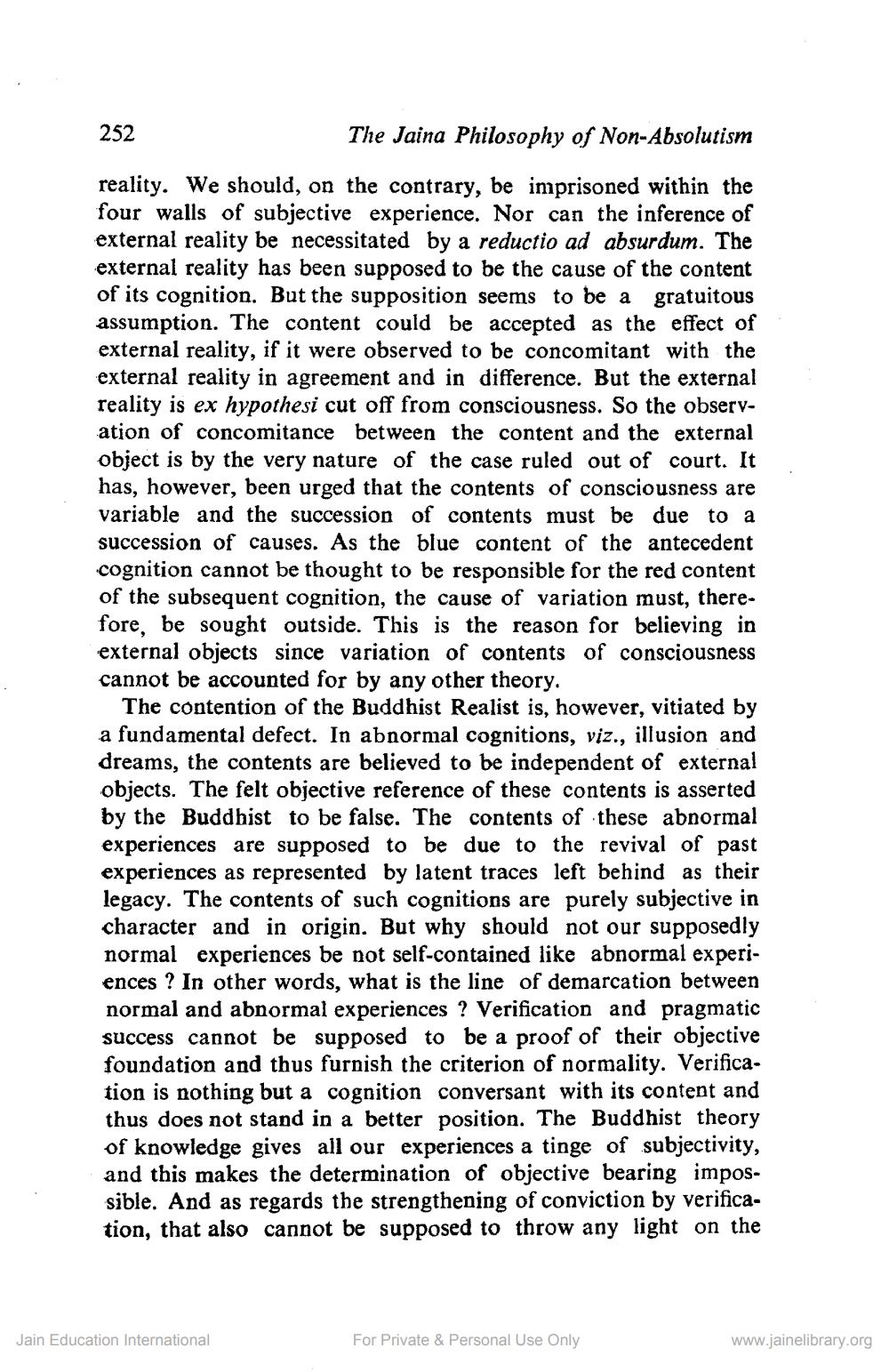________________
252
The Jaina Philosophy of Non-Absolutism
reality. We should, on the contrary, be imprisoned within the four walls of subjective experience. Nor can the inference of external reality be necessitated by a reductio ad absurdum. The external reality has been supposed to be the cause of the content of its cognition. But the supposition seems to be a gratuitous assumption. The content could be accepted as the effect of external reality, if it were observed to be concomitant with the external reality in agreement and in difference. But the external reality is ex hypothesi cut off from consciousness. So the observation of concomitance between the content and the external object is by the very nature of the case ruled out of court. It has, however, been urged that the contents of consciousness are variable and the succession of contents must be due to a succession of causes. As the blue content of the antecedent cognition cannot be thought to be responsible for the red content of the subsequent cognition, the cause of variation must, there. fore, be sought outside. This is the reason for believing in external objects since variation of contents of consciousness cannot be accounted for by any other theory.
The contention of the Buddhist Realist is, however, vitiated by a fundamental defect. In abnormal cognitions, viz., illusion and dreams, the contents are believed to be independent of external objects. The felt objective reference of these contents is asserted by the Buddhist to be false. The contents of these abnormal experiences are supposed to be due to the revival of past experiences as represented by latent traces left behind as their legacy. The contents of such cognitions are purely subjective in character and in origin. But why should not our supposedly normal experiences be not self-contained like abnormal experiences ? In other words, what is the line of demarcation between normal and abnormal experiences ? Verification and pragmatic success cannot be supposed to be a proof of their objective foundation and thus furnish the criterion of normality. Verification is nothing but a cognition conversant with its content and thus does not stand in a better position. The Buddhist theory of knowledge gives all our experiences a tinge of subjectivity, and this makes the determination of objective bearing impossible. And as regards the strengthening of conviction by verification, that also cannot be supposed to throw any light on the
Jain Education International
For Private & Personal Use Only
www.jainelibrary.org




